Featured
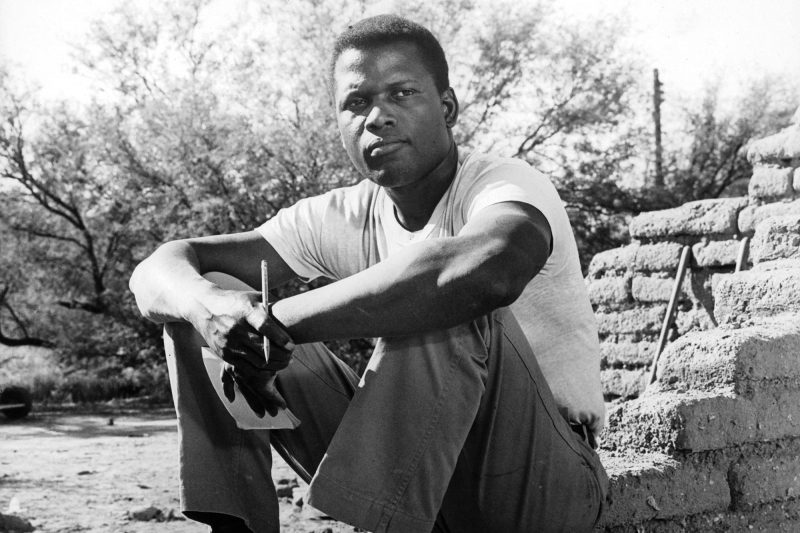 Sidney Poitier Gave More Than He Was Given. By Samantha N. Sheppard / The Atlantic
Sidney Poitier Gave More Than He Was Given. By Samantha N. Sheppard / The Atlantic
Though the late actor was constrained by Hollywood’s disinterest in Black complexity, he fought to inject doses of reality into each of his performances.
During his 1964 acceptance speech for the Academy Award for Best Actor, Sidney Poitier, slightly winded from his trek to the stage, breathily asserted, “Because it is a long journey to this moment, I am naturally indebted to countless numbers of people.” Poitier’s labored emphasis on the “long journey to this moment” underscored both the stamina of his onscreen appeal and his protracted route to acclaim that began with his 1950 film debut in No Way Out. It also gestured toward the adverse conditions that characterized his unprecedented trajectory in Hollywood.
Poitier, the pioneering Black actor and activist who died Thursday at age 94, had a complicated career. From his successful buddy pictures (The Defiant Ones, Duel at Diablo) to his spate of critical hits (To Sir, With Love; In the Heat of the Night; Guess Who’s Coming to Dinner), Poitier played characters who expanded the range and repertoire of Black masculinity. Read more
Related: Here’s what Sidney Poitier said about race and racism. By Nicole Chavez / CNN
Political / Social
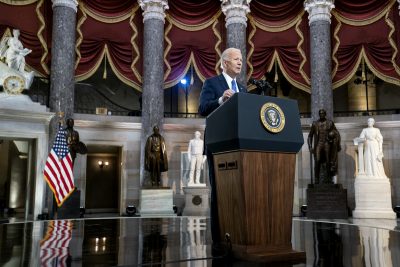 Joe Biden’s January 6 Speech Is a Turning Point For His Presidency. By Walter Shapiro / TNR
Joe Biden’s January 6 Speech Is a Turning Point For His Presidency. By Walter Shapiro / TNR
Just a handful of sentences into his speech commemorating the insurrection a year ago on January 6, President Joe Biden unveiled the biggest political decision of his presidency. Instead of tiptoeing around the specter of Donald Trump, Biden went after the former president directly with an intensity unparalleled in modern political memory. “For the first time in our history, a president had not just lost an election,” Biden declared, his voice dripping with anger. “He tried to prevent a peaceful transfer of power as a violent mob reached the Capitol.” Read more
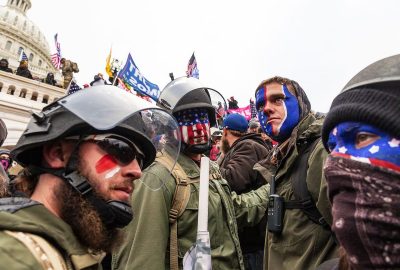 A second civil war: One year after Trump’s violent insurrection, how worried should we be? By Amanda Marcotte / Salon
A second civil war: One year after Trump’s violent insurrection, how worried should we be? By Amanda Marcotte / Salon
Trump and the GOP both want to steal the 2024 election — they just disagree on whether violence helps or hurts them.
Thursday was the one-year anniversary of the Capitol riot that left five people dead and dozens of officers injured, some quite severely. The coverage of this anniversary has largely focused on the threat of future violence. Multiple outlets commissioned polls meant to measure Republican propensity for violence and the results — such as 30% of Republicans hinting that they’re open to future violence — have generated plenty of alarming headlines. Meaty long-form stories about our current dilemma — such as a piece titled “How does this end?” by Zack Beauchamp of Vox and “Trump’s Next Coup Has Already Begun” by Barton Gellman of the Atlantic — are peppered with alarming quotes from political scientists worried about a bloody civil war. Our Canadian neighbors are even openly worried about the possibility of the U.S. devolving into violence. Read more
Related: ‘Patriots’ are undermining American democracy By Michael Harriot / The Guardian
Related: Jimmy Carter: I Fear for Our Democracy / NYT
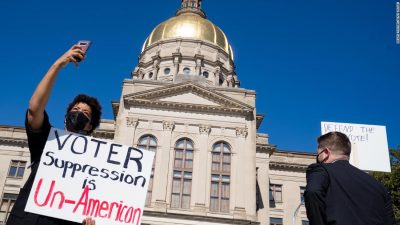 Republican legislatures want to jam through more voting restrictions ahead of 2022 midterms. Igor Derysh / Salon
Republican legislatures want to jam through more voting restrictions ahead of 2022 midterms. Igor Derysh / Salon
Republicans introduced more than 400 bills with provisions to restrict voting last year. Of those, at least 88 bills in nine states will carry over into the new legislative session, according to the Brennan Center. Democrats have described this onslaught of legislation as an extension of the Capitol riot last January, when Trump supporters hunted lawmakers through the halls of Congress in a failed effort to block the certification of Joe Biden’s win. Read more
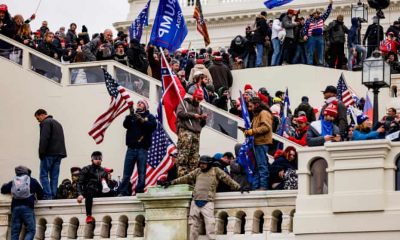 Imagine another America: One where Black or brown people had attacked the Capitol. By Chauncey DeVega / Salon
Imagine another America: One where Black or brown people had attacked the Capitol. By Chauncey DeVega / Salon
Last Jan. 6, and in the weeks and months followed, I and others publicly asked the following question: What would have happened if a “mob” of thousands of Black people (or Muslims, or Latinos) had attacked the Capitol? The answer is obvious: There would have been no such attack, because law enforcement and national security forces would have prevented it from ever happening — or even coming close to happening. But if we suspend disbelief, and imagine a version of America where such an attack somehow took place, those Black or brown or Muslim “protesters” would have been gunned down in large numbers. Those not shot would have been beaten into submission. The Capitol and its surroundings would have literally been bathed in blood. Read more
 Michelle Obama wades into 2022 election cycle, urging Americans to ‘Fight For Our Vote.’ By Rachel Janfaza / CNN
Michelle Obama wades into 2022 election cycle, urging Americans to ‘Fight For Our Vote.’ By Rachel Janfaza / CNN
Former first lady Michelle Obama has a message for Americans ahead of the 2022 midterm elections: “We’ve got to vote like the future of our democracy depends on it.” In a letter titled “Fight For Our Vote,” which was published Sunday as an ad in the New York Times, Obama and her voting rights organization When We All Vote called on Americans to continue engaging in democracy amid a historic attack on voting rights. Read more
 Hate Crimes Trial In Arbery Killing To Put Racism Front And Center By Russ Bynum / HuffPost
Hate Crimes Trial In Arbery Killing To Put Racism Front And Center By Russ Bynum / HuffPost
The evidence of racial bigotry not presented at the murder trial of Ahmaud Arbery’s killers is expected to be front and center in the hate crimes case.
Sentenced to life in prison for murder, the three white men who chased and killed Ahmaud Arbery will soon stand trial on federal hate crimes charges in which jurors will have to decide whether the slaying of the running Black man was motivated by racism. Read more
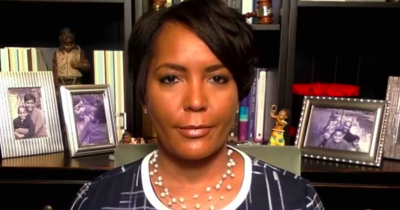 Why Did Keisha Lance Bottoms Quit? By
Why Did Keisha Lance Bottoms Quit? By
The vaunted “Atlanta Way” — the colloquial term used for the collaboration among Black and white elites that has kept the city humming since the middle of the 20th century — is the “envy” of other big-city mayors, she told me. But it’s also a profoundly divided city, the most unequal in the U.S. in several recent years. Black wealth sits astride an equally striking degree of Black poverty. All of which gives her departure a whiff of surrender, a sense that the city’s problems are, for all the breathless boosterism that surrounds it, intractable. She has certainly had enough of the job itself. “My assessment has not been any different than Simone Biles’s or Naomi Osaka’s or Calvin Ridley’s, any number of other people who said, ‘I’m putting my emotional and mental health first,’ ” she told me. Read more
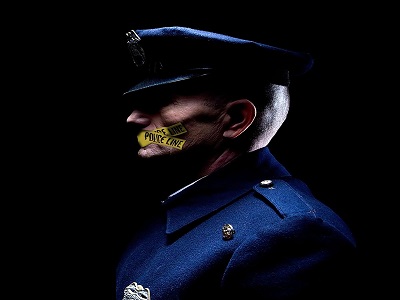 ‘Lost in this Evil’: The police code of silence claims a cop on the Bayou. By Brett Murphy / USA Today
‘Lost in this Evil’: The police code of silence claims a cop on the Bayou. By Brett Murphy / USA Today
On the afternoon of May 2, 2013, Baton Rouge police kicked in the door of 6349 Flag Street, a faded blue shotgun house set atop cinder blocks and surrounded by a chain-link fence and scorched grass. Less than 15 minutes after police went inside, paramedics came out with a 32-year-old Black man on a stretcher and loaded him into an ambulance. The man’s mother looked on from behind the fence, shocked and confused, pacing back and forth as she begged for one of the officers to explain what had just happened. She received no answers. Read more
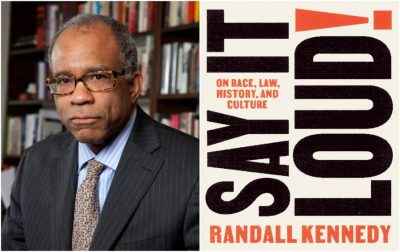 Randall Kennedy Says It Loud. By Daniel Steinmetz-Jenkins / The Nation
Randall Kennedy Says It Loud. By Daniel Steinmetz-Jenkins / The Nation
A conversation with the Harvard law professor about his new essay collection, the state or racial politics, campus activism, and much more.
He argues for a political system that would entail a radical redistribution of wealth and opportunity in the United States; he believes that America’s racial hierarchy must be dismantled; and he has proved to be one of the sharpest and most outspoken critics of Supreme Court Justice Clarence Thomas. The Nation spoke with Randall Kennedy about his new book, Say It Loud! On Race, Law, History, and Culture, his philosophy and intellectual influences, and much more. Read more
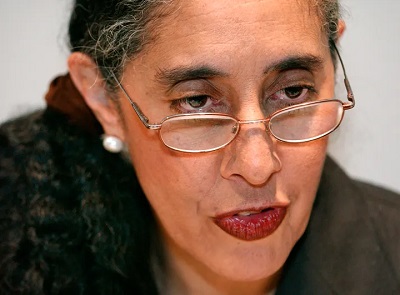 Pioneering Civil Rights Lawyer Lani Guinier Dead At 71. Jessica Gresko and Gary Fields / HuffPost
Pioneering Civil Rights Lawyer Lani Guinier Dead At 71. Jessica Gresko and Gary Fields / HuffPost
Lani Guinier, a civil rights lawyer and scholar whose nomination by President Bill Clinton to head the Justice Department’s civil rights division was pulled after conservatives criticized her views on correcting racial discrimination, has died. She was 71. Guinier died Friday, Harvard Law School Dean John F. Manning said in a message to students and faculty. Her cousin, Sherrie Russell-Brown, said in an email that the cause was complications due to Alzheimer’s disease. Read more
Ethics / Morality / Religion
 Even in this time of fear, HBCUs continue the African American spiritual tradition of hope. By Denise Oliver Velez / Daily Kos
Even in this time of fear, HBCUs continue the African American spiritual tradition of hope. By Denise Oliver Velez / Daily Kos
As the COVID-19 pandemic continues to wreak havoc, we need spiritual uplifting. Music can always help us get through another day. Last week’s edition of #BlackMusicSunday featured voices coming together to create harmony in both sound and life. Today, let’s explore the long tradition of African American spirituals, which aided Black folks in surviving enslavement and beyond, and still resonate today. These songs were initially introduced to the non-Black public via Historically Black Colleges and Universities (HBCUs). These institutions’ choirs and choruses have continued to perform them for audiences worldwide. Read more
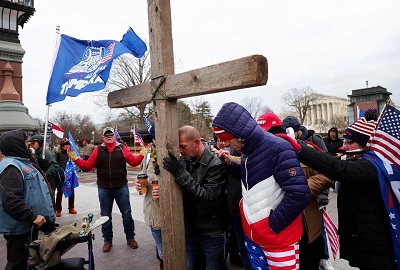 How Christian nationalism drove the insurrection: A religious history of Jan. 6. By Kathryn Joyce / Salon
How Christian nationalism drove the insurrection: A religious history of Jan. 6. By Kathryn Joyce / Salon
In the midst of the invasion of the U.S. Capitol on Jan. 6, 2021, Jacob Chansley, the bare-chested man in Viking horns who’s come to be known as the QAnon Shaman, stopped his fellow marauders in the Senate chamber to pray. “Thank you Heavenly Father for gracing us with this opportunity … to send a message to all the tyrants, the communists and the globalists, that this is our nation, not theirs,” he said. “Thank you for filling this chamber with patriots that love you and that love Christ. Thank you for allowing the United States of America to be reborn.” Read more
Related: The Twisted, Trumpist Religion of Jan. 6th. By Thomas Lecaque / The Bulwark
Related: Since Jan. 6 attacks, spiritual leaders unify to combat Christian nationalism. By
 Major GOP donor sends mass email tying Jews to vaccine genocide conspiracy. By Aldous J Pennyfarthing / Daily Kos
Major GOP donor sends mass email tying Jews to vaccine genocide conspiracy. By Aldous J Pennyfarthing / Daily Kos
The founder and chair of Entrata, a Silicon Slopes tech firm, has resigned his position after sending an email to a number of tech CEOs and Utah business and political leaders, claiming the COVID-19 vaccine is part of a plot by “the Jews” to exterminate people. The remarks triggered condemnation throughout Utah’s tech community, and led to David Bateman’s resignation from the company’s board of directors after FOX 13 first reported on the email. The email by Bateman, shared with FOX 13 by numerous sources Tuesday morning, begins with the subject line “Genocide.” Bateman confirmed to FOX 13 in text messages that he sent the email. Read more
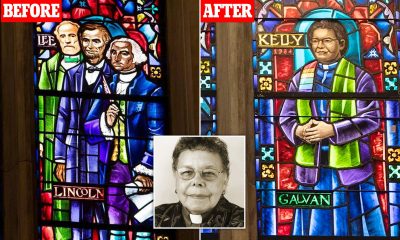 Idaho church window once depicting Robert E. Lee now honors Black female bishop. By Adelle M. Banks / RNS
Idaho church window once depicting Robert E. Lee now honors Black female bishop. By Adelle M. Banks / RNS
An Idaho church has replaced a stained-glass window honoring Confederate Gen. Robert E. Lee with an image of the first African American woman bishop elected in the United Methodist Church. The new window, prominently featuring Bishop Leontine T.C. Kelly, was installed in the Cathedral of the Rockies in Boise on Dec. 7. Kelly, who died in 2012 at the age of 92, was the first African American woman elected to the episcopacy by a major religious denomination. Read more
 In praise of Archbishop Gómez’s anti-racism. By
In praise of Archbishop Gómez’s anti-racism. By
Responding to the murder of 22 Mexican immigrants in El Paso, Texas, in 2019, Archbishop José Gómez, who was born in Mexico, reflected on his very personal connection to the victims. “We have seen the evil of African Americans being targeted in racist terror attacks, notably with the church shooting in Charleston, South Carolina, in 2015,” said Gómez. Invoking the specter of white nationalism, the archbishop of Los Angeles emphasized that the shootings in El Paso (a town in which he spent much of his life) were “carried out in the name of stopping Mexican migration.” Read more
 Earth: One of God’s failed experiments? By Thomas Reese / RNS
Earth: One of God’s failed experiments? By Thomas Reese / RNS
Could the Earth be one of the trillions of experiments God is running throughout the universe? If so, will it be a failed experiment? Humankind’s sacred Scriptures, written in prescientific times, often portray the Earth and humanity as the center of the universe. Recent scientific discoveries have suggested that this is not so. It is time to update our theological imaginations. Why would God create such a huge universe with so many possible sources of life if he did not want thousands of species to bloom? Do we think that God has so little imagination that we are the only possibility he could come up with? Read more
Historical / Cultural
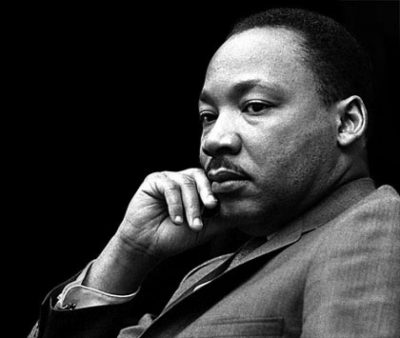 Martin Luther King, Jr.,’s History Lessons. By Jelani Cobb / The New Yorker
Martin Luther King, Jr.,’s History Lessons. By Jelani Cobb / The New Yorker
King understood the nation’s challenges as part of a continuous narrative. Today, a narrow view of America’s past could imperil its future.
The Montgomery speech is notable because it presages the interracial populism that became an increasingly prominent part of King’s thinking and organizing in his remaining years; it’s notable, too, because it highlights the extent to which his thought had always been informed by a study of American history. In his “I Have a Dream” speech, he had mentioned the ideas of “interposition and nullification,” which he attributed to Wallace, but which implicitly harked back to John C. Calhoun’s efforts to protect slavery. Read more
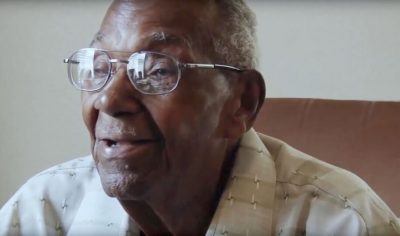 U.S.’ oldest surviving WWII veteran, Lawrence Brooks, has died at the age of 112. By Walter Einenkel / Daily Kos
U.S.’ oldest surviving WWII veteran, Lawrence Brooks, has died at the age of 112. By Walter Einenkel / Daily Kos
On Wednesday, the United States’ oldest surviving World War II veteran died. Lawrence Brooks was 112 years old, according to the National WWII Museum. Brooks was the youngest of 15 children, born to sharecroppers in Baton Rouge, Louisiana. His family moved to Mississippi after the Great Depression. When Brooks was 31 years old, he was drafted into the Army “and spent World War II in the predominantly African American 91st Engineer Battalion.” His service stationed him all over the Pacific, cleaning and cooking for the battalion’s white officers. By the end of his service he was ranked as Private 1st Class. Read more
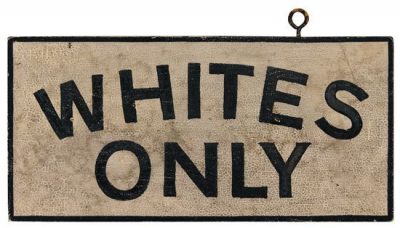 The two Kentucky CRT bills: Only white history allowed. By Berry Craig / Daily Kos
The two Kentucky CRT bills: Only white history allowed. By Berry Craig / Daily Kos
Bills, HB 14 and HB 18, seek to limit a public elementary or secondary teacher’s freedom to teach about systemic racism. HB 18 would also include public colleges and universities. Under HB 14, the state could dock a school district $5,000 in funding for each day a teacher “persists” in violating the law. “Also, under HB 14, teachers can lose their certification if they are found in violation of the law, according to KRS 161.120 (I),” said Jim Johnson of Louisville, who is part of a group that’s organizing a protest against HB 14 and HB 18 at the Capitol on Tuesday and Wednesday. HB 14 and HB 18 reflect the right-wing hysteria over Critical Race Theory. Though it is taught in law schools, not K-12 schools, Republicans stick the “CRT” label on almost any school program that meaningfully promotes diversity and inclusion. Read more
Related: The G.O.P. Is Making ‘Critical Race Theory’ the New ‘Shariah Law.’ By Charles M. Blow / NYT
 The Power of Reclaiming My Asian Name. By Marian Chia-Ming Liy / Wash Post
The Power of Reclaiming My Asian Name. By Marian Chia-Ming Liy / Wash Post
Like many Asian Americans, I have long spurned my full name. A wave of racism made me say: No more.
I was born in the United States, but I was very much caught between two cultures. In my traditional immigrant family, I learned Mandarin first. Then, starting in kindergarten, I had to take English-as-a-second-language classes and speech therapy, and had a rough time fitting in. So, I became a journalist with hopes of squashing stereotypes. But while I was proactively calling out racism in my stories, I wasn’t doing the same in my personal life — not even with my own name. Many Asian immigrants end up adopting or being assigned Anglicized names to fit in. Read more
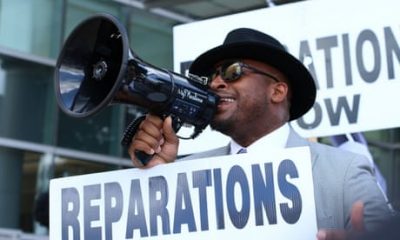 ‘If not us, then who?’: inside the landmark push for reparations for Black Californians. By Vivian Ho / The Guardian
‘If not us, then who?’: inside the landmark push for reparations for Black Californians. By Vivian Ho / The Guardian
Dawn Basciano’s ancestors arrived five generations ago in Coloma, California, as enslaved people, forced to leave behind an infant son enslaved to another family in Missouri. Those ancestors, Nancy and Peter Gooch, were freed in 1850 when California joined the union as a free state, and 20 years later, their son and his family were able to join them in the fertile agricultural land north-east of Sacramento. Their journey west was funded by the sweat and hard work of Nancy, who grew and sold fruit, mended clothes and cooked for the local miners.
Nancy and her descendants would go on to purchase more than 400 lush acres of farmland in Coloma. But what should have been a story of triumph ended instead as a tale all too familiar to formerly enslaved Black Americans across the US. The state of California seized the majority of that land under the guise of eminent domain to build a state park, and the family never received just compensation. Read more
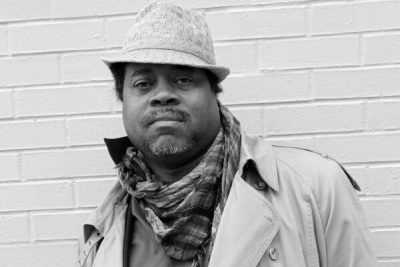 The Vitality of Black Criticism. By Daphne A. Brooks / NYT
The Vitality of Black Criticism. By Daphne A. Brooks / NYT
Before his death, Greg Tate spoke with four other critics at the Pop Conference about the need for Black writers to face down racist institutions and take the lead in cultural conversations.
Last month, popular music lost one of its greatest philosophers and storytellers: The critic, scholar, teacher, musician and New York City grass-roots cultural icon Greg Tate, a towering intellect and a modern-day griot, died at 64. His singular critical prose — in The Village Voice and Vibe, among other outlets, and collected in two anthologies — seamlessly fused dense, dazzling vernacular wisdom and street corner wit with equally intricate ivory tower analytic discourse. Read more
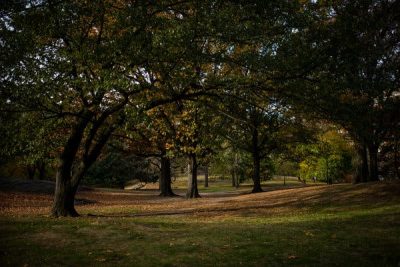 In Search of the Black Utopia. By Brent Staples / NYT
In Search of the Black Utopia. By Brent Staples / NYT
The Metropolitan Museum of Art in New York City has a long history of “period rooms” that use art, architecture and furnishings to convey a sense of bygone eras. The museum renovated this tradition in ways it could not have foreseen when it enlisted the production designer Hannah Beachler — who took home an Oscar for “Black Panther” — as lead curator of an installation celebrating the Black utopian community that was destroyed in 1857 to make way for Central Park. The enclave known as Seneca Village was established in 1825 and eventually grew to about 200 people. It was a shining example of African American self-reliance and community building when the press slandered it as a “nigger village” and a “shantytown” to justify sweeping it away. Read more
 Rare Toni Morrison Short Story To Be Published This Month. By AP and NPR
Rare Toni Morrison Short Story To Be Published This Month. By AP and NPR
To much of the world the late Toni Morrison was a novelist, celebrated for such classics as “Beloved,” “Song of Solomon” and “The Bluest Eye.” But the Nobel laureate did not confine herself to one kind of writing. Morrison also completed plays, poems, essays, and short stories, one of which is coming out as a book on Feb. 1. “Recitatif,” written by Morrison in the early 1980s and rarely seen over the following decades, follows the lives of two women from childhood to their contrasting fortunes as adults. Zadie Smith contributes an introduction and the story’s audio edition is read by the actor Bahni Turpin. Read more
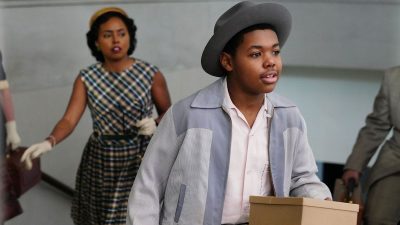 “Women of the Movement,” though imperfect, gives life to Emmett Till’s story. By Melanie McFarland / Salon
“Women of the Movement,” though imperfect, gives life to Emmett Till’s story. By Melanie McFarland / Salon
The highest service ABC’s limited series does for Emmett Till’s legacy is to make us understand the boy that he was.
The six-part “Women of the Movement” is built around a distinct awareness that most of what we know about Emmett Till is encompassed in two or three images. One is a handsome photograph of the 14-year-old proudly sporting a stylish hat. Another shows the teen beaming brightly beside his mother, Mamie Till-Mobley, her arm draped around his shoulders. Read more
Sports
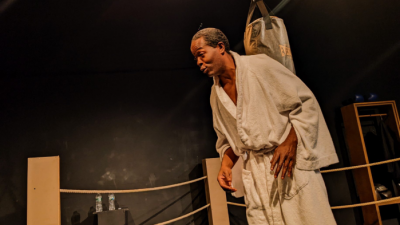 FAMU alum and professor take one-man show ‘Sugar Ray’ to off-Broadway. By Andrew J. Skerritt / The Undefeated
FAMU alum and professor take one-man show ‘Sugar Ray’ to off-Broadway. By Andrew J. Skerritt / The Undefeated
The show explores boxer Sugar Ray Robinson’s life, including his descent into dementia
Florida A&M professor Luther D. Wells and alumnus Reginald L. Wilson are taking Sugar Ray, a one-man show about legendary boxer Sugar Ray Robinson, to an off-Broadway theater. The two conducted rehearsals in December 2021 on the FAMU campus as they prepared for the opening of the 90-minute production based on the life of Robinson, considered to be the greatest pound-for-pound boxer of all time. The play opened Thursday at the Gene Frankel Theatre in New York City and is scheduled to run through Jan. 23. Read more
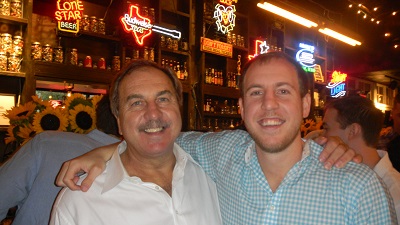 Ernie Grunfeld’s son details his family’s journey from the Holocaust to the NBA in new book. By Scott Allen / Wash Post
Ernie Grunfeld’s son details his family’s journey from the Holocaust to the NBA in new book. By Scott Allen / Wash Post
During his junior year at Stanford, Dan Grunfeld wrote a 20-page family history for one of his American Studies classes, and it focused in part on his father, Ernie, the only NBA player whose parents survived the Holocaust. Grunfeld’s professor told him it was an amazing story, and while the leading scorer on the Cardinal’s 2004-05 men’s basketball team was more focused at the time on following in his dad’s footsteps and making it to the NBA, the positive feedback stuck. Read more
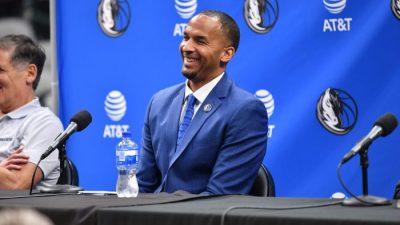 Nico Harrison on the Mavs’ general manager job, life at Nike, Kobe Bryant, Luka Doncic and more. By Marc J. Spears / The Undefeated
Nico Harrison on the Mavs’ general manager job, life at Nike, Kobe Bryant, Luka Doncic and more. By Marc J. Spears / The Undefeated
‘I’m super proud of being a Black general manager. That’s a badge of honor. I think there needs to be more of us.’
Who is Nico Harrison? NBA fans and media unfamiliar with the longtime Nike basketball executive immediately questioned the move when he was named the Dallas Mavericks’ general manager. But for those familiar with the ex-Montana State basketball star who once was one of Kobe Bryant’s closest confidants, they knew that the Mavs somehow landed one of the world’s most respected basketball minds who had the needed experience after nearly two decades with Nike. Read more
 Amir Johnson Is More Than an Answer in N.B.A. Trivia. By Jonathan Abrams / NYT
Amir Johnson Is More Than an Answer in N.B.A. Trivia. By Jonathan Abrams / NYT
His name was the last on a list that included LeBron James, Kevin Garnett and Kobe Bryant. But his biggest impact on basketball may be yet to come.
A strong work ethic contributed to Johnson’s productive 14-year N.B.A. career in Detroit, Toronto, Boston and Philadelphia as a reliable and steadying influence. Johnson joined the Ignite last season with flickering aspirations of prolonging his playing career. Younger players, Johnson found, sought him out with questions. He surprised himself with how easily he had the answers at his disposal, like how to handle family obligations, how to establish routines and how to dress. Read more
Site Information
Visit our home page for more articles, book/podcast and video favorites. And at the top of this page register your email to receive notification of new editions of Race Inquiry Digest. Click here for earlier Digests.
About Race Inquiry and Race Inquiry Digest. The Digest is published on Mondays and Thursdays.
Use the buttons below to share the Digest in an email, or post to your Facebook, Linkedin or Twitter accounts.